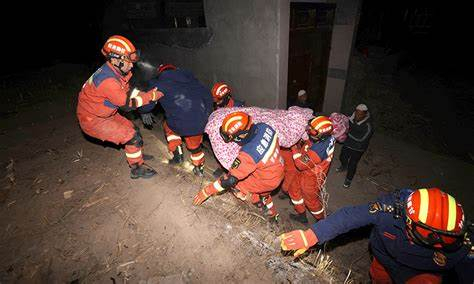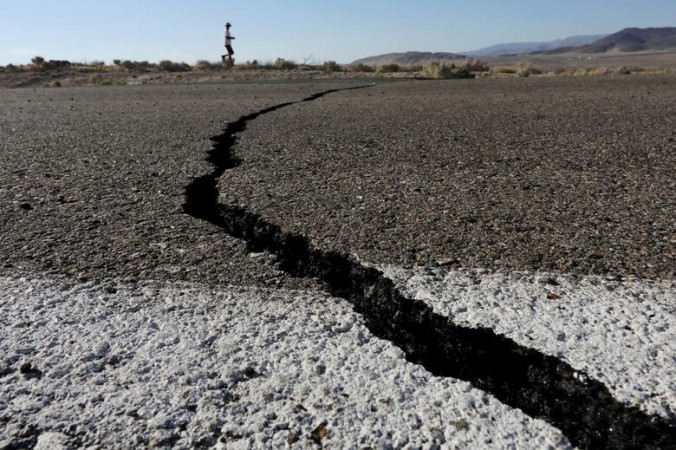A powerful earthquake rocked a mountainous region in northwestern China on Tuesday, claiming the lives of at least 116 people, according to officials and state media reports. The earthquake struck the rural area of Jishishan County with its epicenter in Gansu Province, causing buildings to crumple while residents were asleep, forcing many to flee into the freezing night.
Rescue efforts are underway in the affected region, with officials confirming 105 fatalities in Gansu Province and nearly 400 injuries. Additionally, 11 people lost their lives in Haidong, a city in the neighboring Qinghai Province, as reported by the state-run Xinhua News Agency.

The earthquake, measured at a magnitude of 5.9 by the United States Geological Survey and 6.2 by the China Earthquake Administration, wreaked havoc on nearly 5,000 houses, disrupting water, electricity, and transportation links in parts of Gansu. The province is already grappling with a cold snap, with temperatures plummeting to almost -20 degrees Celsius (-4 degrees Fahrenheit) in Jishishan during the quake.
Residents described being abruptly awakened and fleeing into the cold, grabbing whatever extra layers of clothing they could. The quake's aftermath left many stranded, with some resorting to setting bonfires or makeshift heaters to stay warm. Shocked residents took to social media to share the devastation, recounting the loss of neighbors and friends and assessing the damage to their homes.
In response to the disaster, rescue workers have established tent camps in affected villages, delivering essential supplies such as cots, blankets, mattresses, and coats. Despite the challenges, villagers expressed determination to rebuild together.
Gansu, known as one of China's poorest provinces, faces additional hurdles in relief efforts. The local government, lacking sufficient resources, must rely on support from the provincial government. Jishishan County, home to approximately 260,000 people, primarily consists of small townships and villages.

The earthquake-prone nature of the region adds complexity to recovery, as many houses may not be built to withstand such seismic events. Professor Xu Xiwei from the China University of Geosciences highlighted the vulnerability of the area's structures and the increased difficulty in nighttime evacuations, contributing to the high casualty count.
As rescue operations continue, the State Council and the National Health Commission have dispatched teams to oversee efforts. Chinese leader Xi Jinping emphasized the need for swift infrastructure repairs in the "high-altitude area with cold weather."
Amidst this tragedy, reports also surfaced of another earthquake, registering a magnitude of 5.5, striking Xinjiang, a far-western region approximately 1,800 miles west of Jishishan. Details regarding casualties from this second quake were not immediately available at the time of reporting.








